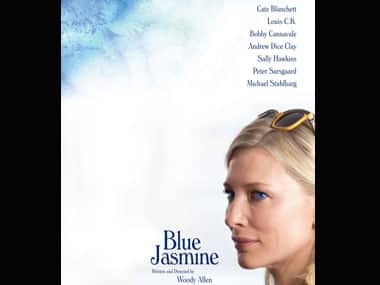Some months ago, an outraged tweet did the rounds of Indian film lovers’ timelines. It disclosed a ghastly, terrible secret: the face of India’s anti-tobacco campaign, Mukesh Harane, wasn’t a dead man as the public service announcements claim, but an actor waffling around Mumbai’s Prithvi Theatre. Like a lot of the news that circulates in social media, this was untrue. Harane died in 2009, of oral cancer that was probably caused by his addiction to gutkha. However, what the manic re-tweeting of Harane’s fictional resurrection showed was how heartily sick all of us are of that blighted series of ads that precedes every movie screening and tries to scare smokers by showing them a dirty sponge being squeezed and a beaker of grey sludge. So far, all the Indian government’s anti-tobacco campaign has served to do is increase popcorn sales because audiences now know that they can walk into a movie screening a few minutes late without missing the start of the film. [caption id=“attachment_1152703” align=“alignleft” width=“380”]  Blue Jasmine poster. Wikimedia Commons.[/caption] Yesterday, however, the campaign caused a little more than disgruntlement. Director Woody Allen refused to release his latest film Blue Jasmine in India. Allen’s spokesperson told Reuters, “Due to content in the film, it cannot be shown in India in its intended manner. Therefore, the film is not scheduled to play there.” Allen refused the “customisations” that are necessary as per government regulations, which basically means the superimposed warning of “Cigarette smoking is injurious to health” that must surface every time someone lights up on the Indian silver screen. There is no indication that the Indian censors demanded any edits in the film. Many will cheer for Allen standing up for his work and claiming his right as the director of the film to decide what happens to it, the way David Fincher did when he refused the edits that the Indian censors demanded of The Girl With The Dragon Tattoo. There are those who will raise the valid question of whether one line of warning against smoking, written in small, semi-transparent type, is actually potent enough to destroy the aesthetics of Allen’s frames in Blue Jasmine. Would that warning popping up now and then really distract us from the story he’s telling? It’s possible that Allen is being a cantankerous old perfectionist who is making a big deal out of a stupid requirement. But it is his film and he is the only one who has the right to decide whether or not it should be ‘customised’ for India. The real question is, where does that leave the Indian viewer? The answer is, snubbed. You can either limit your film watching to what is available in cinemas or watch a pirated copy of the film. (If you’re particularly principled, you could keep your fingers crossed for a few months with the hope that a DVD store near you is able to import Blue Jasmine once it’s out on DVD.) Usually, opting for piracy endangers the chances of films like Blue Jasmine coming to India. Films in English make less than small change out of Indian box office returns, unless they’re Hollywood blockbusters (these make some money, but nothing in comparison to the kind of returns they rake in from other parts of the world). This may sound odd when you think of how many people are obsessed with good cinema here and how expensive multiplex tickets are. However, the fact is that if you’ve seen a film for free weeks before it’s officially released in India, albeit on your computer, then the urge to pay to see it in the theatre is weak. Particularly when you remember that parts of it may be arbitrarily edited, words may be blanked out and there will be that wretched anti-tobacco use campaign to suffer before the film starts. In case of Blue Jasmine, if you unleash your torrential love for cinema via the internet, it could be argued as a viewer exercising their right to good cinema. But if you do, keep in mind that, given Allen objected so mulishly to one line of text appearing in a corner of the frame, he probably wouldn’t approve of you watching his film squished into the size of a computer screen. After all, there’s no denying the fact that computers and televisions can’t match the kind of detail and depth that the big screen presents a viewer. As far as the Indian viewer is concerned, it seems to be a lose-lose situation no matter what we do.
Allen refused the “customisations” that are necessary as per government regulations, which basically means the superimposed warning of “Cigarette smoking is injurious to health” that must surface every time someone lights up on the Indian silver screen.
Advertisement
End of Article


)
)
)
)
)
)
)
)
)



